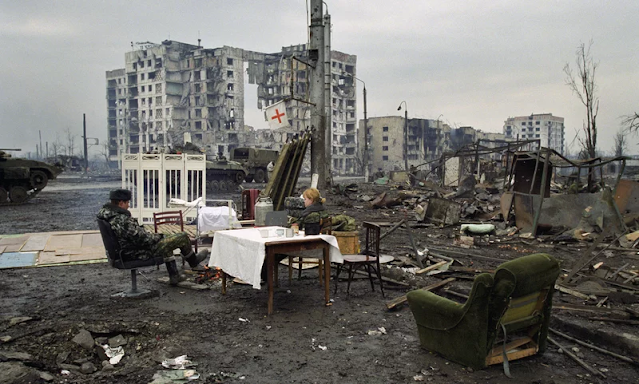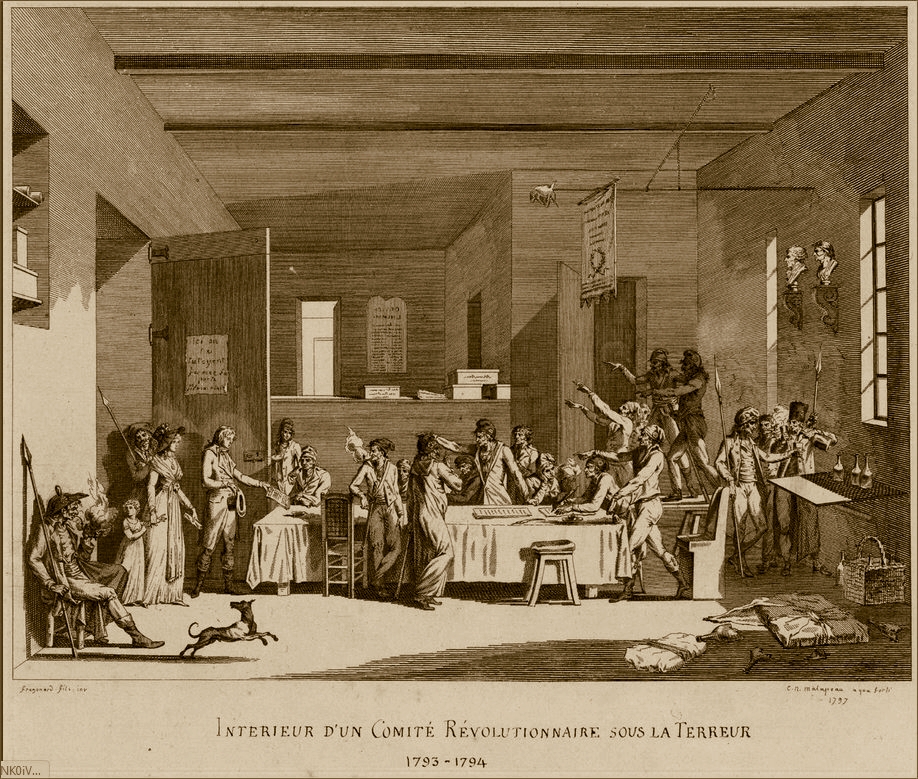'Because things don’t appear to be the known thing; they aren’t what they seemed to be
neither will they become what they might appear to become.'
Posted by Martin Cohen
But pause to look at this image. There’s a bizarre juxtaposition of suburban normalcy and wartime horror here. For a start, the table set with four chairs. Who else will be coming to dinner? Notice at the moment the two soldiers are a man and a woman, again echoing many a more homely, family scene.
Of course, as with most picnics, it is the setting that makes the moment, but here it is a nightmare scene of blasted apartment blocks and grey, smoking ruins. Not the family car, but the “family tank” is parked nearby.
On the table, the actual food is rather meagre.which may explain why both figures at the table look, frankly, rather miserable.










